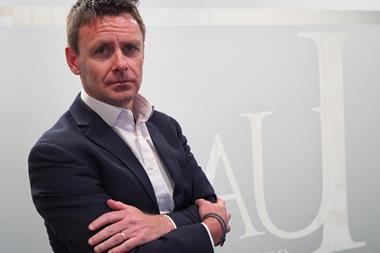Risk managers warned that data will be key in the battle against the range of new risks faced by businesses across the world.
Speaking as risk managers met in Ediburgh for the Airmic annual conference Bill Bradshaw SVP and operations manager at FM Global said data will be vital as the insurance industry and risk managers battle to address the fast evolving risk environment.
“If I am asked what risk managers need to do, I would say they have to work with their brokers and insurers to examine their exposures and how they can be best managed,” he said.

“Good and accurate data will deliver good outcomes so risk managers need to understand their risks and deliver data which can be used by the industry to assess exposures, and with it pricing.
Bradshaw added: “I think the biggest issue for our clients is quite simply the pace of change we have seen in recent months and years.
“Events such as the hail storms in France and the floods in Italy have highlighted the level of risks, we all face and many of our clients have been affected.
“As an industry we need to look at how we can better use data to manage risks. The past four years have seen over $100 billion of insured natural catastrophe losses annually.
“However, the majority of those losses have not come from the major loss events we have seen in the past. Much is now from the new or secondary perils such as floods drought and wildfires for instance.
“The major risk such as hurricanes, and earthquakes are very well modelled, but we do not have the level of data and modelling for the secondary perils, and it is something that the industry is working hard to deliver.”
Bradshaw added the need to understand the exposures and the risks have seen risk managers looking for greater support from their insurers.
“If you take the example of PV cells in solar panels, we need to understand if they are resistant to sudden and violent hail storms.
“We are moving to a world of greater sustainability and the need for new technology and investment to reach net zero. However, while businesses are looking to solve one risk in terms of sustainability, they are doing so with new technology which is likely to create new risks.
“If we don’t understand the risks around the move to net zero energy provision and build resilience then if we do see problems arise it will be the public that will bear the brunt though higher energy costs for instance.”














No comments yet